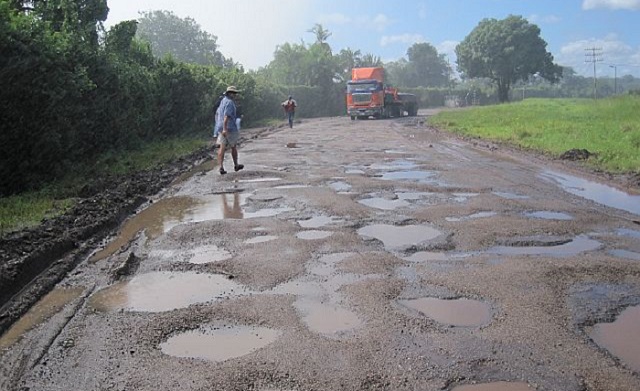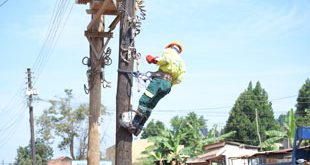
How our country has descended into the ideology of a nanny state that is ruining youths
THE LAST WORD | ANDREW M. MWENDA | There has grown and consolidated a depressing mindset in our country that for anything good to happen, government must be the one to do it. This mindset is most pronounced among the educated who have been fed onto this ideology of the state as Santa Claus.
Visit social media and you find young people pontificating about the problems they face and how government has not come to helped them. This pathology has also penetrated the social consciousness of ordinary folk in rural areas. In the local lexicon, it is referred to as twagala gavumenti etuyambe i.e. we want government to help us. This is Uganda’s dangerous slippery slope.
There was a time in Uganda when local communities took initiative to fix their issues in public health, education, infrastructure, food security etc. These activities were referred to as bulungi bwansi, or for the good of the community. They were rooted in local traditions.
Local leaders, especially traditional chiefs, would mobilise citizens in a voluntary fashion around a shared problem. They would go out and contribute free labour once in a month to fix a community road, church, school or build a bridge. Sometimes government would send help in form of equipment, but it was secondary.
Secondly, local governments in Uganda had a source of public revenue through graduated tax (or head tax). This was paid every year by every able-bodied male above 18 years (women were exempted). These taxes were to local government treasuries and helped maintain public works in local communities.
It is true that often times harsh methods were used to collect this tax from poor individuals. But I see very little difference between what local chiefs used to do with poor local people and what Uganda Revenue Authority (URA) does with rich Ugandans today.
There are many things that can only be possible through the actions of government. However, government cannot be responsible for life’s chances of everyone.
Government can create an enabling environment for those with skills to work hard and succeed. But government cannot create success for individuals. Even those who bootlick government, they still have to bootlick it, and do so with skill, to get good jobs and contracts. But a mindset that encourages people to be idle and wait for government to help them is dangerous. It explains to a significant degree, Uganda’s dilemma.
How did we come to this? The NRM was the first government in post-independence Uganda to come with a populist program. In its zealous attempts to democratise politics in local communities, it inadvertently created incentives that led to the mindset of a nanny state.
In a revealing PhD thesis at the London School of Economics and Political Science in 2000, Frederick Golooba-Mutebi laid bare the origins of this crisis. It is now a problem shared by politicians of all political parties and persuasions.
In the precolonial, colonial and immediate postcolonial Uganda, the main authority was the traditional chief. According to Prof. Mahmoud Mamdani, the colonial state gave this chief unrestrained power which its post-colonial successor upheld. It was power to collect the local head tax. The chief would assess you for the tax you had to pay. If you failed, the chief would arrest you. It was the chief to decide the punishment i.e. how much of a fine you paid and then it was he who released you. So, the chief had despotic power to arrest, to prosecute, to judge and to implement the sentence.
The NRM sought to curb this overwhelming power. It introduced local councils and made the power and authority of local chiefs subject to elected local officials. The chief did not only collect taxes. He enforced community works such us building community roads. He ensured local people kept granaries to ensure food security, that every homestead had a pit latrine, a well maintained well for clean water and a stand for drying plates, cups etc. Although these public works and public health policies were rooted in local culture and were largely voluntary, they also needed the paternalistic hand of the local state officials to avoid some people free riding.
And here is Golooba-Mutebi’s point: most of these activities ensured the public good at the price of personal inconvenience. One had to go spend a Saturday working on a local road, dig a person pit latrine, clean their well, fill their granary and build a proper kitchen etc.
When NRM gave elected local officials power over administrative chiefs, it changed the structure of incentives. Elected officials depended on pleasing voters to gain and retain power and status. People sought to avoid personal inconvenience by using elected officials to reign in intrusive administrative chiefs. How?
Whenever the chief asked local people to work on local public works or build granaries and pit latrines, they ran to their elected officials for protection. The elected officials responded by calling the chief and asking him not to disturb the people. This way, public works began to falter. Only government could now provide them. Then there was no one to enforce public health measures. Soon government abolished graduated tax. Overtime, a culture has been built that government has many obligations to serve to population but the people have no corresponding responsibility to contribute (like through taxes or labour) to the public good.
What began as an NRM pathology has been bought and accepted by the opposition. This shows that the problem is now structural – elective politics makes politicians unwilling to do anything that inconveniences voters. Golooba-Mutebi says NRM thought that democratising politics at the local level would lead to accountability; voters would hold public officials to account for delivery of public goods and services. During his research, Golooba-Mutebi found that each time teachers, medical workers, public works employees etc. did not show up for work, people complained to their elected officials. In almost all cases, nothing improved and people did not vote out the LC official for failure of public works.
The lesson Golooba-Mutebi brings out is that the democratisation of local politics in Uganda, especially the way NRM did it, undermined administrative efficiencies. Local people were able to avoid personal inconvenience but at the price of the collapse of community roads, food insecurity and poor public health. Expected accountability benefits did not materialize either. What happened is that a culture of a nanny state was create and has now become pervasive. Everyone is waiting for government to babysit them.
****
amwenda@independent.co.ug
 The Independent Uganda: You get the Truth we Pay the Price
The Independent Uganda: You get the Truth we Pay the Price




Andrew gets it wrong again with his pseudointellectualism. He forgets that the government’s failure to plan for the rapid urbanization of Uganda (the concentration of human populations into discrete areas) has quickly changed the way Ugandans relate to the State and each other. The meaning of Community is being rapidly redefined. If nothing is done soon congestion, pollution, crime, disease and time wasted in commuting will reach alarming levels.
Wow… simply put… FEDERO
But Andrew Mwenda is controversial 🤔 He was defending the steady progress now he is realising that the State is out of hands. UGANDA plans for next elections than community development.
Nothing to do with mindsets it is simply the glaring fact that nothing grows around government activity. What I mean is if the government constructed a road in my village,what activities prosper around this?
Massive government projects like roads or modern markets only target the winner of the bid and the end user .The accruals to the community like jobs, good prices for local produce or property prices are very minimal.
You see if 50 Chinese had a project in your village, they will build a camp with prefabricated materials and keep to themselves.Not even the bars will see them.
I suspect this is the reason government has resorted to sending cash in the villages to firefight the increased lethergy.
Does it not bother you that in 2022 most peasants still lack hoes..
Thank you